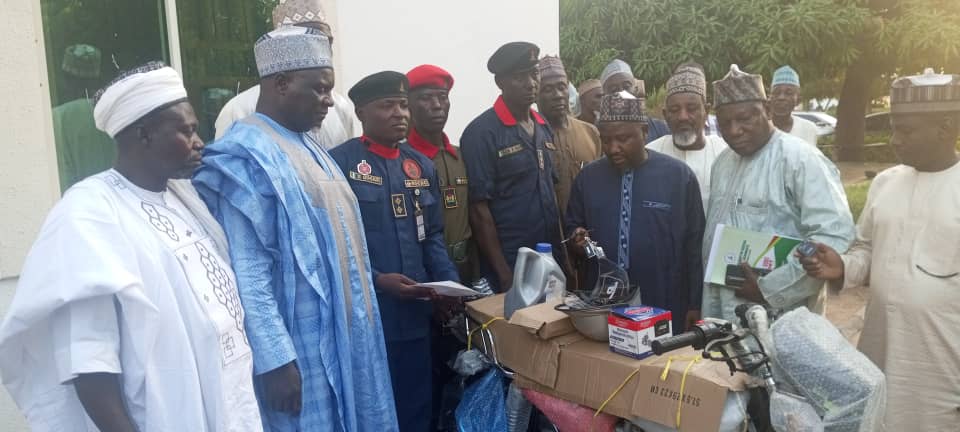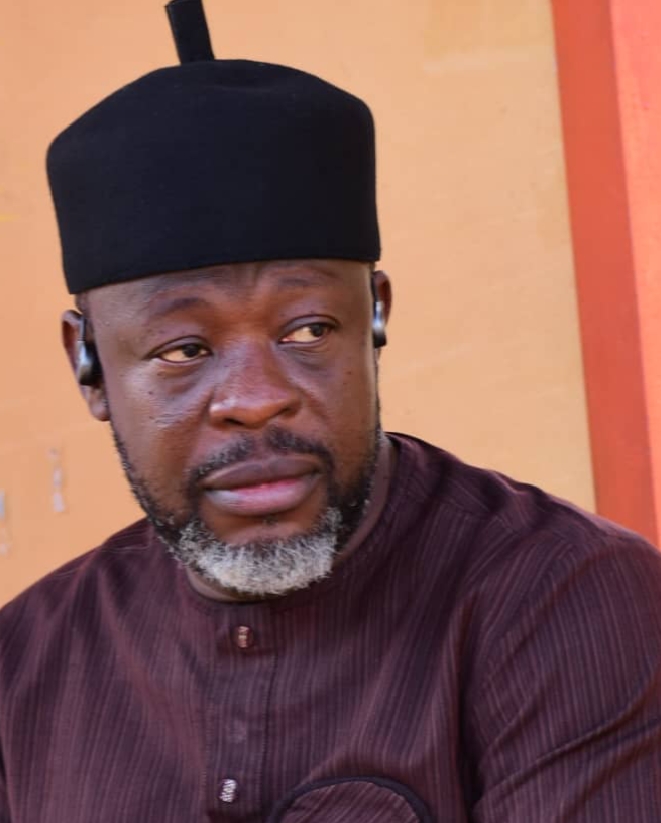Understanding the Fears of Nigerians Regarding the Samoa Deal. By Chidi Ekeh

Understanding the Fears of Nigerians Regarding the Samoa Deal

Introduction
In November 2023, the European Union (EU) and its 27 member states signed the Samoa Agreement, a $150 billion trade and investment deal, with 79 countries from the Organisation of African, Caribbean, and Pacific States (OACPS). The agreement is aimed at fostering sustainable economic growth, promoting development and peace, and addressing global challenges such as climate change and migration. While the agreement holds promise for economic and social development, it has sparked concerns among Nigerians regarding its implications. This essay delves into the fears Nigerians have concerning the government’s assent to the Samoa Deal, exploring its potential impacts on the country’s sovereignty, economy, and social fabric.
Historical Context and the Samoa Agreement
The Predecessor: The Cotonou Agreement
The Samoa Agreement follows the Cotonou Agreement, which governed relations between the EU and ACP countries from 2000 to 2020. The Cotonou Agreement focused on development cooperation, economic and trade cooperation, and political dimensions. In contrast, the Samoa Agreement takes a more comprehensive approach, covering six priority areas: democracy and human rights, sustainable economic growth and development, climate change, human and social development, peace and security, and migration and mobility. The transition from the Cotonou to the Samoa Agreement signifies a shift towards addressing a broader range of global issues, with a structure that includes a common foundation applicable to all parties, combined with regional protocols for Africa, the Caribbean, and the Pacific.
Key Concerns of Nigerians
Sovereignty and National Interests
One of the primary fears among Nigerians is the potential erosion of national sovereignty. International agreements often come with commitments that may influence domestic policies. The Samoa Agreement, despite the Nigerian government’s assurances, raises concerns about the extent to which Nigeria might have to align its policies with those stipulated by the EU and other signatory countries. The apprehension is that such alignment might not always align with Nigeria’s national interests or the priorities of its citizens.
Economic Impacts
The economic implications of the Samoa Agreement are another significant concern. While the agreement aims to foster sustainable economic growth and development, Nigerians worry about the potential for economic dependency on foreign powers. The influx of European investments, though beneficial in the short term, might lead to scenarios where local industries and businesses cannot compete with their European counterparts. This could result in job losses and economic instability. Additionally, there is skepticism about whether the benefits of the agreement will be equitably distributed across different sectors of the Nigerian economy, particularly in rural areas that are often left out of major economic advancements.
Social and Cultural Concerns
Nigerians are also wary of the social and cultural implications of the Samoa Agreement. Initial concerns about the agreement’s provisions related to LGBTQ rights, although unfounded in the final text, highlight the sensitivity of social issues in Nigeria. The agreement’s commitment to promoting gender equality, while positive, might be perceived as an imposition of Western values on Nigerian society. This apprehension is rooted in the fear that international agreements could gradually erode traditional values and cultural practices that are integral to Nigeria’s identity.
Legal and Governance Issues
Legislative Approval and Domestication
For any international agreement to have the force of law in Nigeria, it must be domesticated by the National Assembly. As of now, the Samoa Agreement has not been brought before the National Assembly for consideration. This legal requirement provides a safeguard against any potential overreach of executive power in committing the country to international agreements without parliamentary scrutiny. However, the process of domestication also raises questions about the transparency and inclusiveness of the decision-making process. Nigerians are concerned about whether their voices will be adequately represented in the deliberations and whether the agreement will be adapted to suit the specific needs and context of Nigeria.
Governance and Anti-Corruption Measures
Another critical concern is the effectiveness of governance and anti-corruption measures embedded in the Samoa Agreement. Corruption has been a persistent issue in Nigeria, and there is skepticism about whether the agreement includes adequate provisions to forestall graft. The success of the Samoa Agreement in promoting sustainable development and economic growth will largely depend on its implementation and the actions taken by signatory countries to address corruption and promote good governance. Nigerians are apprehensive about whether the agreement will be able to overcome the systemic corruption that has historically hindered development efforts in the country.
Comparing the Samoa Agreement with the Cotonou Agreement
Scope and Membership
The Samoa Agreement covers 79 countries from the OACPS, compared to the 78 ACP countries under the Cotonou Agreement. This expanded scope represents around 2 billion people and more than half of the seats at the United Nations, highlighting the agreement’s global significance. The inclusion of more countries brings a broader range of perspectives and interests, which could either enrich the partnership or complicate its implementation.
Priority Areas
While the Cotonou Agreement was based on three pillars—development cooperation, economic and trade cooperation, and political dimension—the Samoa Agreement lays down common principles covering six priority areas. This shift indicates a more holistic approach to addressing global challenges. However, it also raises concerns about whether the agreement’s ambitious scope might dilute its effectiveness in addressing specific issues pertinent to Nigeria and other signatory countries.
Structure and Duration
The Samoa Agreement includes a common foundation applicable to all parties, combined with three regional protocols focusing on specific regional needs. This structure is designed to make the agreement more flexible and responsive to the unique challenges of different regions. However, Nigerians are concerned about whether the regional protocols will adequately reflect and address Nigeria’s specific needs. Additionally, the agreement’s 20-year duration raises questions about the long-term implications for Nigeria’s development trajectory and its ability to renegotiate terms that may become unfavorable over time.
Potential Benefits of the Samoa Agreement
Despite the concerns, the Samoa Agreement also holds potential benefits for Nigeria. The agreement aims to promote investment opportunities and enhance trade relationships, which could lead to economic growth and development. The focus on environmental sustainability and climate change aligns with global efforts to address these critical issues, which are particularly relevant for Nigeria, given its vulnerability to climate change impacts.
Sustainable Economic Growth and Development
The agreement’s emphasis on inclusive, sustainable economic growth and development presents an opportunity for Nigeria to attract foreign investments and enhance its trade relationships. This could lead to job creation, infrastructure development, and overall economic advancement. However, ensuring that these benefits are equitably distributed across different sectors and regions of the country will be crucial.
Environmental Sustainability and Climate Change
Nigeria’s commitment to addressing climate change and promoting environmental sustainability could be strengthened through the Samoa Agreement. The agreement’s provisions for climate action, environmental protection, and sustainable resource management align with Nigeria’s efforts to mitigate the impacts of climate change and promote sustainable development. However, effective implementation and local adaptation of these provisions will be essential to realize their potential benefits.
Governance and Institutions
The Samoa Agreement’s focus on human rights, democracy, good governance, and the rule of law provides a framework for strengthening Nigeria’s governance institutions. Improved governance can lead to more effective public service delivery, reduced corruption, and enhanced accountability. However, the success of these efforts will depend on the commitment and capacity of Nigerian institutions to implement the agreement’s provisions effectively.
Conclusion
The Samoa Agreement presents both opportunities and challenges for Nigeria. While the agreement holds promise for fostering sustainable economic growth, promoting development, and addressing global challenges, it also raises significant concerns regarding national sovereignty, economic impacts, and social and cultural implications. Nigerians are particularly wary of the potential for economic dependency, the erosion of traditional values, and the effectiveness of governance and anti-corruption measures.
To address these concerns, it will be essential for the Nigerian government to ensure transparency and inclusiveness in the decision-making process, particularly in the domestication of the agreement by the National Assembly. Additionally, effective implementation and local adaptation of the agreement’s provisions will be crucial to maximizing its benefits and mitigating its potential negative impacts. By addressing these concerns and leveraging the opportunities presented by the Samoa Agreement, Nigeria can navigate the complexities of this international partnership and chart a path towards sustainable development and economic growth.
Engineer Chidi Ekeh a public affairs analyst writes from Abuja FCT Nigeria




